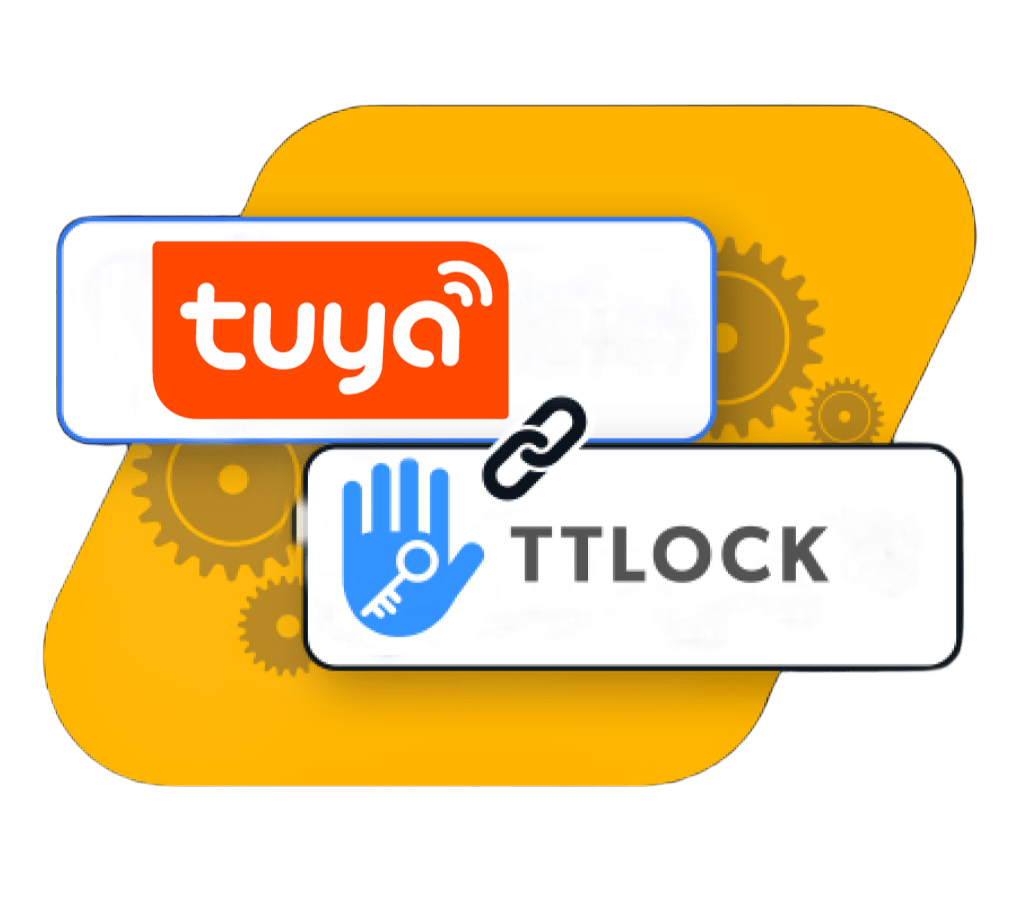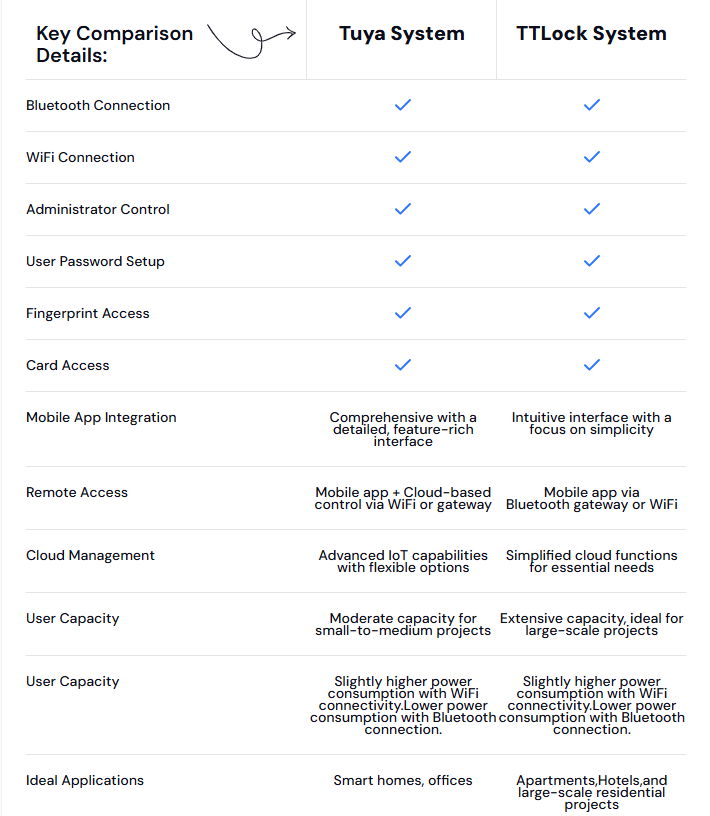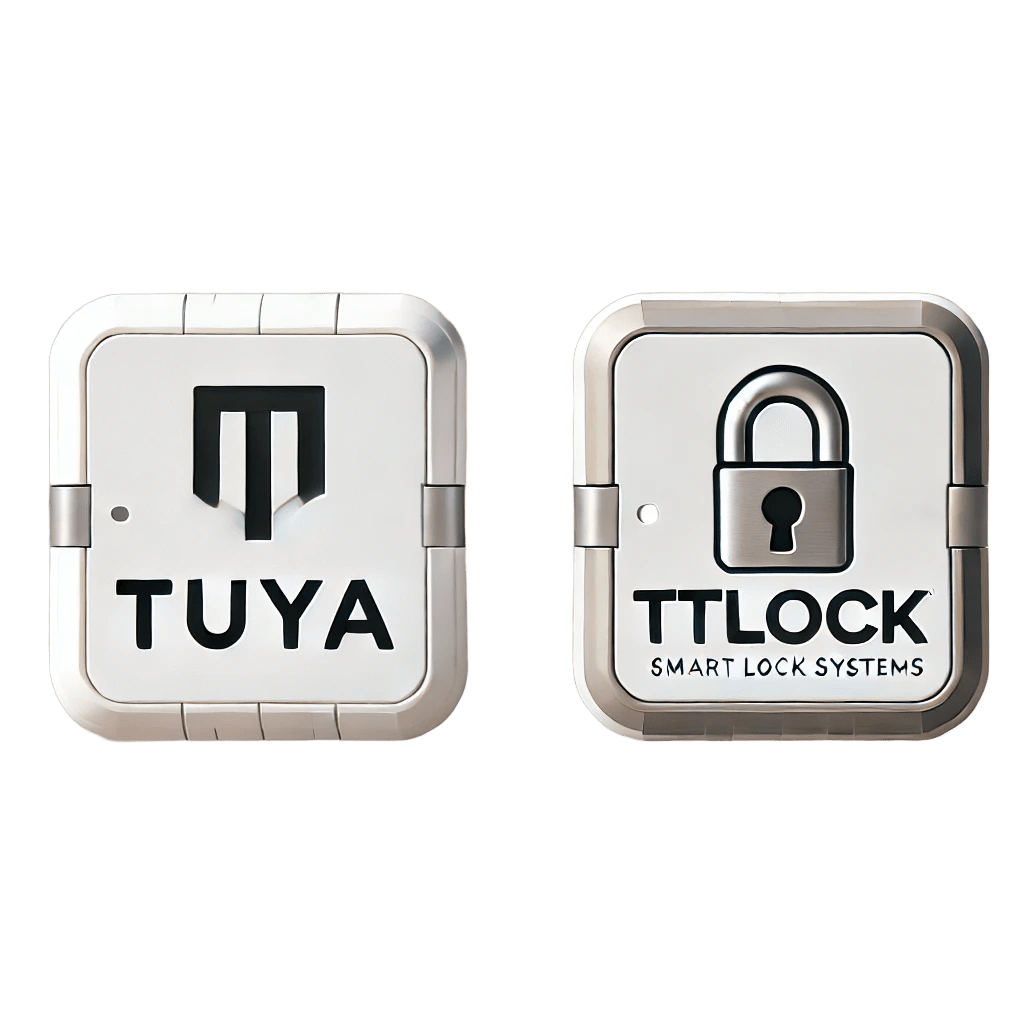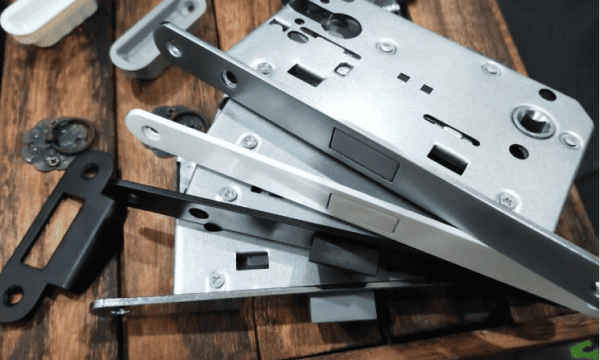Selecting the right smart lock system for your project is a crucial decision for project managers. Two of the most popular smart lock platforms in the market are Tuya and TTLock, each offering unique features and benefits. Furthermore, deciding between connection types like WiFi, Bluetooth, gateways, or NB-IoT adds another layer of complexity. In this article, we’ll provide an in-depth comparison of Tuya and TTLock systems, their application scenarios, and the best connection methods for different projects.
Tuya vs. TTLock: Similarities and Differences
Both Tuya and TTLock are established platforms for smart lock solutions, enabling advanced functionality such as remote control, multiple unlocking methods, and integration with smart home ecosystems. However, they differ in their core focus and industry positioning:
Similarities:
- Remote Control and Monitoring: Both systems allow users to control locks and monitor access remotely via mobile apps.
- Integration Capabilities: They support integration with smart home platforms, making them versatile for residential and commercial applications.
- Multiple Unlocking Methods: PIN codes, app control, RFID cards, and temporary passwords are supported by both.
- Bluetooth and WiFi Options: Both platforms offer Bluetooth for energy efficiency and WiFi for higher connectivity.
Differences:
Company Focus:
- Tuya: A global leader in IoT, Tuya provides a comprehensive platform that integrates a vast range of smart devices, including smart locks, lights, cameras, and more. Tuya’s ecosystem caters to smart homes, commercial spaces, and smart buildings.
- TTLock: Specializes primarily in smart lock systems, focusing on providing a simple and reliable solution for locks in residential and commercial projects.
Integration Scope:
- Tuya locks are ideal for highly integrated smart home systems, allowing seamless interaction with other smart devices like doorbells, thermostats, and cameras.
- TTLock excels in standalone lock management, making it perfect for property managers and projects requiring efficient lock access control without extensive smart home integration.
Development and Industry Growth:
- Tuya is well-positioned for long-term growth in IoT due to its wide device ecosystem and partnerships across various industries.
- TTLock focuses on optimizing lock-specific solutions and is a preferred choice for many lock manufacturers globally.


Application Scenarios for Tuya and TTLock
Tuya
- Ideal for Smart Home Integration:
If your project involves comprehensive smart home ecosystems, Tuya is the better choice. Its ability to interact with multiple devices like cameras, lights, and thermostats makes it ideal for residential complexes, high-end apartments, and smart buildings.
- Preferred for Fully Automatic Locks:
Fully automatic smart locks often utilize Tuya WiFi systems for seamless integration and advanced automation features.
TTLock
- Best for Property Management:
TTLock is a practical choice for short-term rental properties, hotels, and commercial spaces, where standalone lock control is critical. The TTLock system allows easy management of multiple locks via a centralized app.
- Suitable for Semi-Automatic Locks:
Semi-automatic locks typically use TTLock Bluetooth systems for their cost-effectiveness and reliable functionality.
WiFi vs. Bluetooth: Connection Options Explained
WiFi
- Advantages:
- Offers real-time access control and monitoring from anywhere.
- Best suited for high-integration projects like smart buildings and luxury homes.
- Disadvantages:
- Consumes more power, leading to shorter battery life.
- May not be ideal for projects with limited connectivity or frequent access needs.
Bluetooth
- Advantages:
- Energy-efficient and ideal for locks that require infrequent updates or remote access.
- Commonly used in engineering projects and short-term rentals, where cost and battery life are priorities.
- Disadvantages:
- Limited range compared to WiFi.
- Requires manual updates if not paired with a gateway.
- Advantages:
Gateway Options
- A gateway bridges Bluetooth locks to the internet, allowing remote control while maintaining low power consumption.
- Best for projects needing occasional remote access without the energy drain of WiFi.
NB-IoT
- Ideal for large-scale projects with widespread deployments, such as smart cities and industrial facilities.
Why Tuya WiFi Is Common for Fully Automatic Locks
Fully automatic locks often rely on Tuya WiFi systems due to their advanced features and seamless integration into IoT ecosystems. These locks are perfect for high-end projects requiring sophisticated automation and real-time monitoring.
Why TTLock Bluetooth Is Preferred for Semi-Automatic Locks
Semi-automatic locks, often used in engineering projects, rely on TTLock Bluetooth systems for their reliability, low cost, and efficient energy usage. Bluetooth systems ensure a hassle-free experience for property managers without overcomplicating the setup.
Final Thoughts
When choosing a smart lock system, there’s no one-size-fits-all solution. Project managers should carefully evaluate their specific needs:
- Choose Tuya WiFi for high-integration projects, luxury homes, and fully automated locks.
- Opt for TTLock Bluetooth for engineering projects, short-term rentals, and semi-automatic locks.
Ultimately, selecting the right system can save energy, reduce costs, and simplify operations.
At LocksPioneer, we provide tailored smart lock solutions for every project. Contact us to learn more and find the perfect system for your needs.







